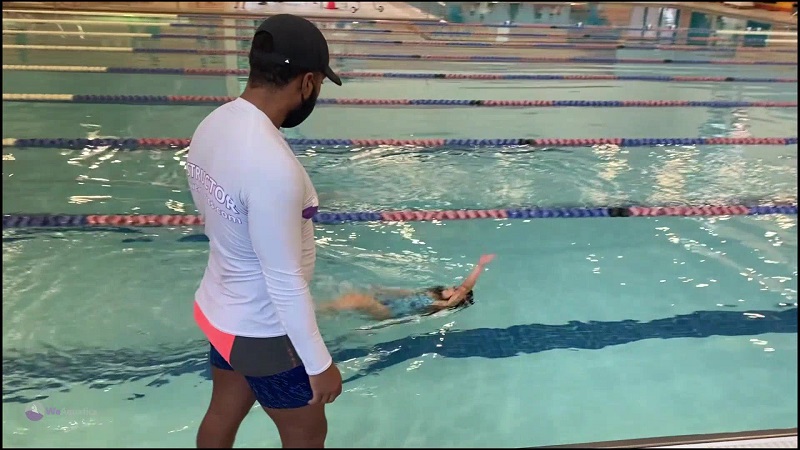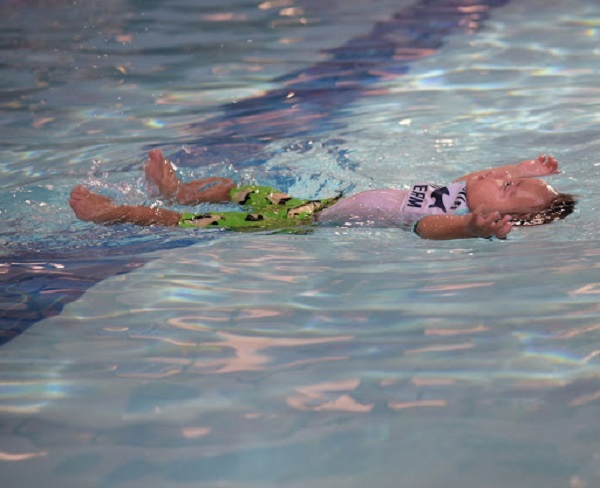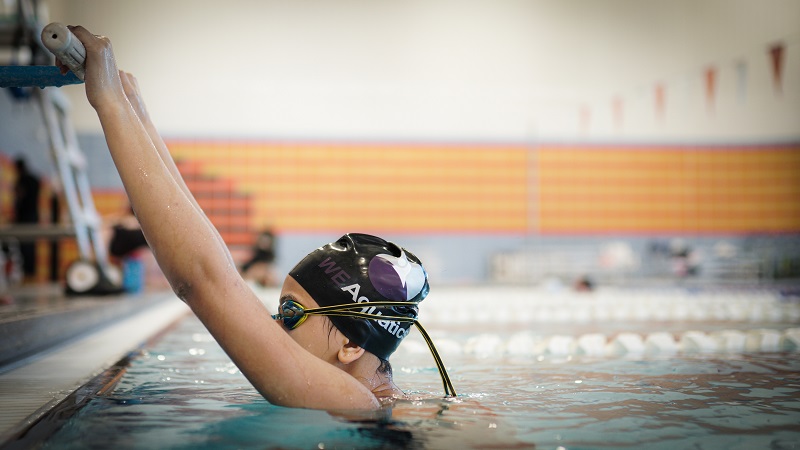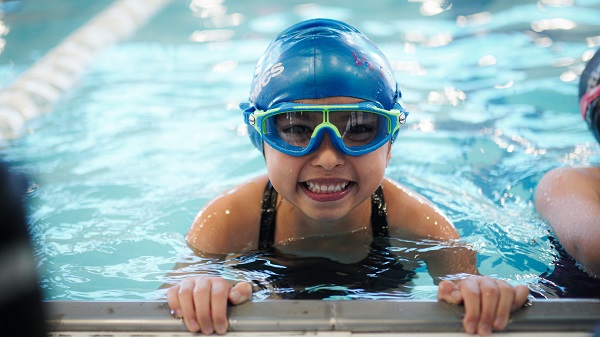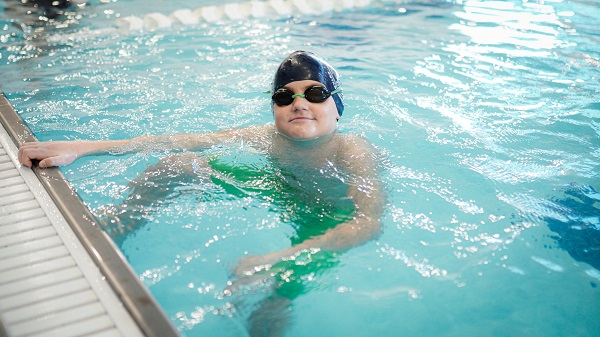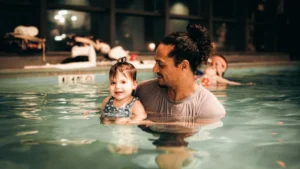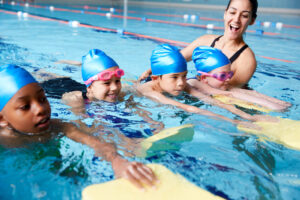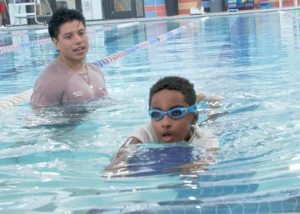Why Swimming Is a Good Exercise for Your Little One’s Mind and Body
Learning how to swim is a skill that stays with a student for a lifetime. The advantages, however, go far beyond physical health. From emotional health to social skills to safety, here are ten distinct benefits of swimming lessons for children:
1. Be Safer in the Water
Drowning is the second-leading cause of unintentional death in children one to fourteen. The safety aspect of learning how to swim is, arguably, the most important and pressing reason to enroll a child in swim lessons.
Being competent and confident in the water can help reduce the likelihood of a tragedy. Research estimates formal swimming lessons reduce the drowning risk in children ages one to four by a staggering 88 percent.
Infant swimming lessons are especially important as learning to swim this young lays the foundation for becoming safe, accomplished swimmers who are comfortable in the water.
2. Promote Physical Exercise and Health
Healthy, active kids turn into healthy, active adults. Swimming from a young age can turn physical activity into a fun lifelong habit.
This provides numerous physical advantages that can benefit both children and adults:
-
- Increases lung capacity
- Enhances cardiovascular strength
- Helps build muscle and increase muscle mass
- Promotes endurance
- Develops motor skills
- Reduces blood pressure
- Improves oxygen and the flow of blood to the brain
- Improves strength, balance, and flexibility
- Improves digestion (yes, really!)
- Increases energy levels
While it surprises many, swimming is also a significant burner of calories. Vigorous swimming results in more calories burned per hour than running at five miles per hour!
If children stick with swimming into adulthood, there are also specific health benefits for seniors. This includes being a joint-friendly workout that can reduce inflammation.
3. Improve Sleep
Proper sleep is critical for children’s physical and mental development. A whole-body workout like swimming can provide enough stimulation, excitement, and physical exhaustion to promote a good night’s sleep.
4. Enhance Memory and Improve Concentration
Exercise does more than make our bodies strong. It also works out the brain—specifically the part associated with learning and memory. Swimming and other forms of exercise can improve memory and overall cognition.
Between leg movements, arm movements, and breathing techniques, swimming also requires a lot of coordination. That takes a great deal of mental concentration. Practicing that kind of intense focus provides children with an invaluable blueprint for success later in life.
5. Cultivate Confidence
Swimming isn’t easy. It’s a physically and mentally challenging sport. From summoning the courage to start to practicing until you’ve nailed that butterfly stroke, swimming takes patience and perseverance.
When you have success at something difficult, that provides a tremendous feeling of confidence. You feel you can climb any mountain and tackle any challenge.
6. Build Character
Especially for children, swimming is an amazing opportunity to build character.
With technology, so much today is instantly available. Having to work hard for something, such as water competency, teaches children how to be resilient, dedicated, and mentally tough.
7. Reduce Stress and Anxiety
Exercise is an impressive tool. It releases endorphins, which are natural feel-good chemicals in the brain, and it reduces cortisol, a stress hormone.
A hobby your child enjoys, such as swimming, can also be a great way to achieve emotional balance and to minimize stress outside the pool.
8. Support Classroom-Style Learning
Exercise, such as swimming, is linked to improved cognitive performance, but swimming lessons could even directly help a child with traditional classroom learning.
Swim lessons provide a safe, nurturing environment for guided play, verbal instruction, and sensory learning. This offers a great foundation for the exact type of learning that occurs in a classroom setting.
9. Improve Social Intelligence
You might be taking one-on-one lessons or swimming down that lane yourself, but swimming is a social, community-minded sport.
Participating in swimming can help young children feel part of a like-minded group. Even when done as an individual sport, it can teach valuable team-building skills that translate well beyond the pool.
10. Learn How to Set Goals
Knowing how to set and to work toward goals is one of the most valuable skills you can cultivate. Whether it’s in your professional or personal life, goals are essential to success.
Participating in swimming is all about setting, working toward, and achieving the next goal. At first, it might be something like putting your face in the water. As you progress in the sport, so too will your goals.
Striving for continual improvement in the pool through focused, achievable goals is a life lesson that will serve any child well in the future.
Want all these benefits for your little one? Sign up for swim lessons near you. Register today!

